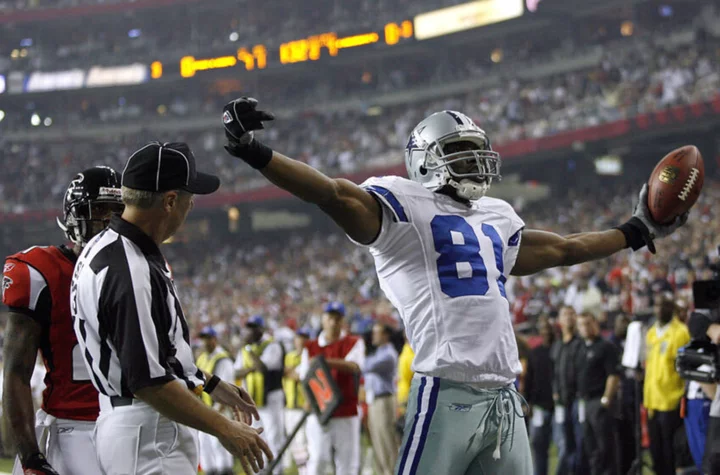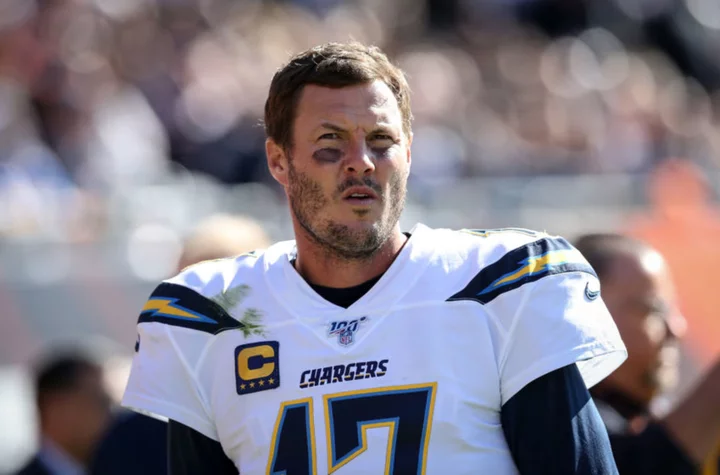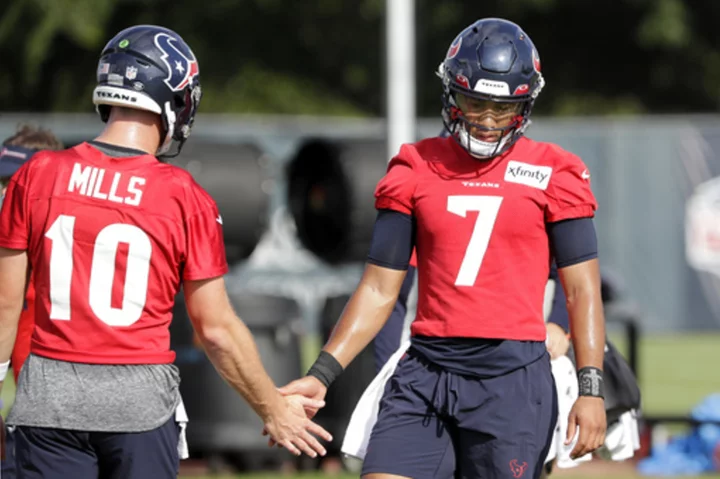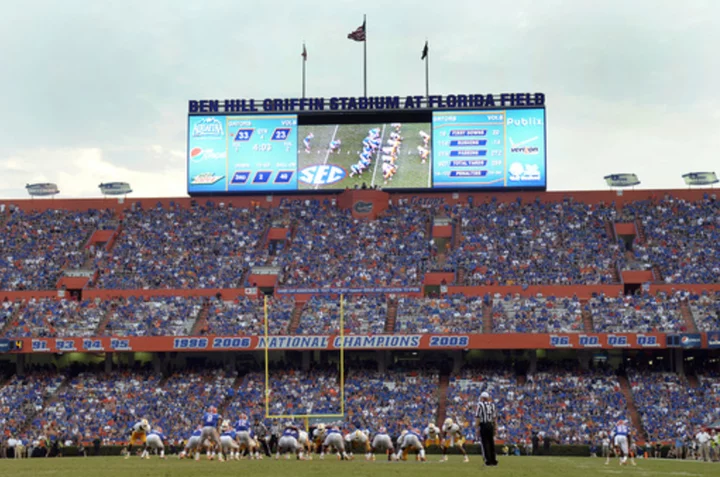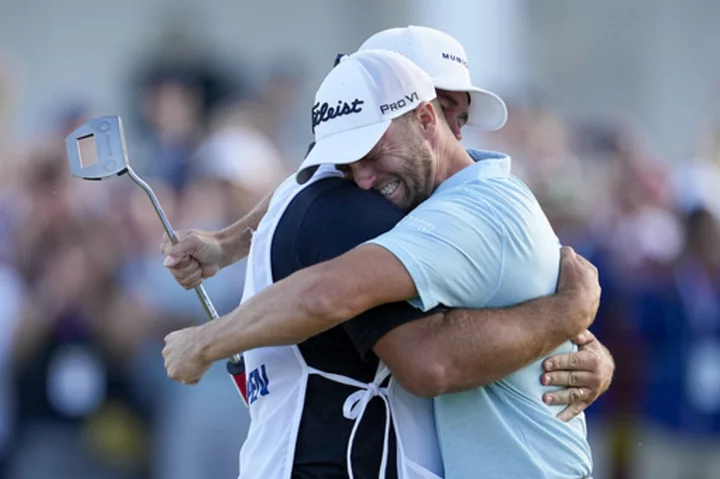NFL fans sometimes see their favorite players sign with a hated division rival. Here are the 10 biggest betrayals in NFL history.
When you are a fan of a team, regardless of the sport, you are bound to have a favorite player. Whether it is a superstar who leads the team to victories, or if they are a role player who comes off the bench to make a difference when it matters the most. Fans will buy their jerseys to rock on game day.
It's only a matter of time until a player's tenure on a team runs out. That is a given, depending on an organization's financial situation and the player's contract demands. But what stings worse for a fanbase is to watch said athlete sign with a rival.
When it comes to the most gut-wrenching instances of an NFL player signing with a rival, here are the 10 biggest betrayals in history.
The 10 biggest betrayals in NFL history, No. 10: Bill Belichick resigns as Jets head coach, joins Patriots
If you live in the New York/New Jersey area and bleed Gang Green, you probably have a less-than-favorable opinion of Bill Belichick. After spending three years as the Jets' defensive coordinator and assistant head coach under Bill Parcells, the Jets named him the new head coach of the team. This came as Parcells stepped down, and wanted Belichick to succeed him.
Then, on the day of his press conference to be introduced as head coach, Belichick wrote a resignation notice to Jets brass. One day after accepting the job, the introductory press conference became a resignation press conference. To this day, no one knows Belichick's exact reasoning as to why he made the decision he made.
Shortly afterward, Belichick accepted the New England Patriots head coaching job. We all know how that went. He became head coach, stumbled upon Tom Brady, started him in relief of an injured Drew Bledsoe, and won six Super Bowl titles during the quarterback's 20-year tenure.
As for the Jets, they pivoted from Belichick to Eric Groh, their linebackers coach. After missing the playoffs with a 9-7 record, Groh resigned. Then came the endless carousel of head coaches for the Jets, as they tried to find the right coach to lead the team to their first Super Bowl victory since their 1968 AFL season.
The 10 biggest betrayals in NFL history, No. 9: Jason Taylor signs with New York Jets
Jason Taylor spent the majority of his career with the Miami Dolphins, where he solidified himself as one of the best pass rushers in the league. Taylor was a consistent Pro Bowler during his time in Miami and won the NFL Defensive Player of the Year award after recording 62 combined tackles (42 solo, 20 assisted), 13.5 sacks, nine forced fumbles, and two interceptions returned for touchdowns, the latter two being the most in the NFL.
While Taylor did leave the Dolphins once in 2008 to sign with Washington, he returned the following year. But after 2009, Taylor left again and opted to sign a two-year contract with the rival New York Jets.
This move must have felt so weird for Dolphins fans. But then, there was the salt poured into the wound to make them feel that much worse.
In Taylor's first season with the Jets, he made it to the AFC Championship Game for the first time in his career. That's right, Taylor got closer to making it to the Super Bowl in one year with the Jets than he did his entire career with the Dolphins.
But, Taylor's stint in New York lasted for that season only. He returned to the Dolphins the following season and retired.
The 10 biggest betrayals in NFL history, No. 8: Darrelle Revis signs with New England Patriots
When it comes to the best cornerbacks in this generation, you can look no further than Darrelle Revis. Opposing receivers, no matter how great they were, had difficulty getting past Revis in coverage. Those pass-catchers who were turned into non-factors on game day were essentially banished to what was called "Revis Island."
Revis was the face of the New York Jets franchise at the start of his career, making it to the Pro Bowl four times in his first six years with the team, and finished runner-up for Defensive Player of the Year in 2009 after recording a league-best 31 defended passes.
But after the 2012 season, in which he tore his ACL, the Jets and Revis could not reach an agreement on a new contract. So, he was dealt to the Tampa Bay Buccaneers and signed a six-year, $96 million contract. Yet, Revis' tenure in Tampa wouldn't last long, as he was released the following year.
So, what was Revis to do? Sign with the New England Patriots. As if trading away Revis wasn't bad enough for Jets fans, they had to watch him sign with their most hated rival, and then ultimately win his first Super Bowl ring in his lone year with them!
Yes, Revis did re-sign with the Jets the following year, the fanbase had to feel like they were punched in the gut repeatedly after watching him join the Patriots. So, that's why he makes the list.
The 10 biggest betrayals in NFL history, No. 7: DeMarco Murray signing with the Philadelphia Eagles
When it comes to the Dallas Cowboys, they always seem to have a great running back. Before drafting Ezekiel Elliott in 2016, they had DeMarco Murray, their 2011 third-round draft pick out of Oklahoma.
In 2013, Murray recorded his first 1,000 rushing yard season with 1,121, which helped him earn his first Pro Bowl bid. But in 2014, Murray blew up stat sheets. In 16 regular season games played, he led the league with 392 carries, 1,845 rushing yards, 13 rushing touchdowns, 449 total touches, and 2,261 yards from scrimmage. Murray was named to the All-Pro First Team and won the NFL's Offensive Player of the Year award.
It was awesome for Cowboys fans to witness this kind of season for Murray. The bad thing was it was a contract year for Murray, so now they had to try and re-sign him. The Cowboys tried as much as they could to retain him, reportedly offering him a four-year, $24 million contract. But, the Philadelphia Eagles waltzed in after losing out on Frank Gore and offered Murray a five-year, $42 million contract. Murray took the deal and was officially an Eagle.
Murray's stint in Philadelphia would last for one year, however, after running for 702 yards and six touchdowns on 193 carries in 2015. Murray started in eight of 15 games played. After that season, the Eagles released Murray, and he then went on to sign a contract with the Tennessee Titans.
The 10 biggest betrayals in NFL history, No. 6: Curtis Martin signs with New York Jets
Curtis Martin may be known as the greatest New York Jets running back of all time, but he actually began his career with the New England Patriots.
Martin was a third-round pick out of Pittsburgh in the 1995 NFL Draft by the Patriots. He had a promising start to his career, winning Offensive Rookie of the Year after running for 1,487 yards and 14 touchdowns on 368 carries. He made it to the Pro Bowl for the second year in a row the season after. But his Patriots career would end after three seasons.
Seeking out a new contract after hitting free agency, the Patriots didn't give Martin what he was looking for. Yet, New England had the opportunity to match any offer given to him. The thing is, the rival New York Jets threw him a six-year, $36 million contract. The Patriots were unable to match it, and the rest was history.
Martin played for the Jets for eight years and ran for a total of 10,302 yards and 58 touchdowns, both of which are the most recorded by a running back in the franchise's history.
While that had to hurt initially for the Patriots fanbase, they got to watch the team win three Super Bowls up until Martin's retirement after the 2006 season.
The 10 biggest betrayals in NFL history, No. 5: Richard Sherman signs with 49ers
Richard Sherman was the face of the Seattle Seahawks' "Legion of Boom" defense. He could shut down opposing wide receivers and he'd let them hear about it. Who could forget when he prevented a game-winning touchdown by San Francisco 49ers wide receiver Michael Crabtree in the 2013 NFC Championship Game? But all good things must come to an end, and that was the end of the "Legion of Boom" Seahawks defense.
After the 2017 season, Sherman became an unrestricted free agent following a release by the team. With that, he was going to command a huge contract, even without having an agent. So, he ended up signing with Seattle's biggest rivals, the 49ers. From wearing the Seahawks' navy blue and neon green to donning the red and gold uniforms. This move had to make Seattle fans feel sick.
In his second year with the 49ers, the team made a run to Super Bowl 54. But, Seahawks fans had to feel good after the 49ers blew a 20-10 lead and lost to the Kansas City Chiefs 31-20.
Overall, Sherman recorded 116 combined tackles (94 solo, 22 assisted), 16 passes defended, and four interceptions.
The 10 biggest betrayals in NFL history, No. 4: Marcus Allen signs with Kansas City Chiefs
Marcus Allen is one of the most prolific players in all of football. He played college football for the USC Trojans, where he won a national championship in 1978 and a Heisman Trophy in 1981. With that, he entered the NFL Draft and was selected 10th overall by the then-Los Angeles Raiders. From there, he won the Offensive Rookie of the Year in 1982, won his first Super Bowl title in 1983, and the NFL MVP award in 1985.
After 11 years with the Raiders, Allen became a free agent. He then went on to sign a contract with one of the Raiders' biggest rivals, the Kansas City Chiefs.
In his first year with the Chiefs, Allen ran for a league-high 12 touchdowns and helped the team make it to the AFC Championship Game that year in a losing effort to the Buffalo Bills.
Overall, Allen played with the Chiefs for five seasons, recording 3,698 rushing yards and 44 touchdowns on 932 carries.
Allen was one of the best running backs in the game during his time with the Raiders. Imagine being a Raiders fan and watching him leave for the rival Chiefs. That had to feel awful.
The 10 biggest betrayals in NFL history, No. 3: Deion Sanders signs with Dallas Cowboys
Deion Sanders is one of the best to ever play in the NFL, regardless of position. He had the ability to defend opposing wide receivers, return kicks for touchdowns and even catch touchdown passes. After spending the first seven years of his career, he signed a one-year deal with the San Francisco 49ers.
In 1994, Sanders won recorded 36 combined tackles (34 solo, two assisted) and six interceptions, which were returned for a league-high 303 yards and three touchdowns. Sanders won Defensive Player of the Year. The 49ers won Super Bowl 29 that year, and it would prove to be Sanders' last with the 49ers.
That offseason, Sanders signed a contract with the Dallas Cowboys. The very Cowboys team that the 49ers had a historic rivalry with, and competed in the NFC Championship Game the previous year. So, after Dallas lost to San Francisco, they signed Sanders to help them reach the Super Bowl.
That move by team owner Jerry Jones paid off, as the Cowboys won their fifth Super Bowl title that year. As it turns out, that would be the team's final trip to the Super Bowl or the NFC Championship Game. Despite that, Sanders was still playing at a high level.
Overall, Sanders recorded 159 combined tackles (148 solo, 11 assisted) and 14 interceptions in his five years with the team. After 1999, Sanders would sign with one of the Cowboys' main rivals in Washington.
The 10 biggest betrayals in NFL history, No. 2: Terrell Owens signs with Dallas Cowboys
No player was more of a lightning rod in the NFL than Terrell Owens. If he was on your favorite team, you loved him as a fan. But when he was on the opposing team, it hurt to watch him make catch after catch and touchdown after touchdown.
After beginning his career with the San Francisco 49ers, Owens signed a contract with the Philadelphia Eagles. In his first year, Owens caught 77 passes for 1,200 yards and 14 touchdowns on 127 targets. He notably played in Super Bowl 39 with a broken leg and a ligament tear in his right ankle, catching 9-of-14 targets for 122 yards in the 24-21 loss to the New England Patriots.
But Owens tenure in Philadelphia ended brutally after demanding a new contract and making public criticisms about quarterback Donovan McNabb. He was eventually suspended by the team and released at the end of the 2005 season.
What did Owens do after his tenure with the Eagles? Why, sign with the Dallas Cowboys, of course.
In each of his first three seasons with the Cowboys, Owens put up over 1,000 receiving yards. In the 2006 season, he led the entire NFL in receiving touchdowns with 13. Overall, he put up 235 receptions for 3,587 yards and 38 touchdowns on 431 targets.
For Eagles fans, they could take solace in the fact that Owens didn't win a Super Bowl with the hated Cowboys. In fact, he didn't win a single playoff game in his three years in Dallas.
The 10 biggest betrayals in NFL history, No. 1: Brett Favre signs with Minnesota Vikings
This has to be the biggest betrayal in NFL history. Brett Favre, despite beginning his career with the Atlanta Falcons, is known for his time with the Green Bay Packers. After all, he was considered one of the best quarterbacks in the league during his peak playing time. But after one Super Bowl title and three NFL MVP awards, Favre's tenure with the Packers reached its end after the 2007 season. Yes, he was traded to the New York Jets for one year, but what happened next shocked the Packers fanbase to their core.
In 2009, Favre signed a contract with the Minnesota Vikings. As if that wasn't bad enough, Favre had a spectacular first season with his new team, leading them to an NFC North title and the second seed in the playoffs. In 16 regular-season games, Favre threw for 4,202 yards, 33 touchdowns, and seven interceptions while completing 68.4 percent of his passes.
Favre led the Vikings to a blowout 34-3 win over the Dallas Cowboys in the NFC Divisional Round. Packers fans then got some pleasure in watching Favre throw a backbreaking interception in overtime that helped the New Orleans Saints win 31-28 and earn their first trip to the Super Bowl.
The following year was one for Favre to forget, as he threw for 2,509 yards, 11 touchdowns, and 19 interceptions while picking up a 5-8 record as the starting quarterback. He would retire after the season.

